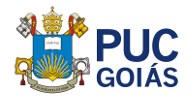Use este identificador para citar ou linkar para este item:
https://repositorio.pucgoias.edu.br/jspui/handle/123456789/5684| Tipo: | Trabalho de Conclusão de Curso |
| Título: | O direito sucessório e a sua omissão junto ao mundo digital |
| Autor(es): | Silva, Pedro Lucas Batista |
| Primeiro Orientador: | Takeda, Tatiana de Oliveira |
| metadata.dc.contributor.advisor-co1: | Bandeira, Walerio Magalhães |
| metadata.dc.contributor.referee1: | Takeda, Tatiana de Oliveira |
| metadata.dc.contributor.referee2: | Bandeira, Walerio Magalhães |
| Resumo: | Tratou-se de análise acerca da herança digital no ordenamento jurídico brasileiro. O escopo está relacionado a apontar e propor soluções para a lacuna deixada pelo Direito Sucessório ao dispor sobre o mundo digital. Também se abordou a temática do reconhecimento ou não do patrimônio digital como herança oriunda da morte do titular de um acúmulo de bens digitais e a dificuldade do Poder Judiciário para aplicar as normas. O método empreendido foi o indutivo, dada a observância de casos concretos na busca por constatações particulares e a pesquisa foi bibliográfica, considerando o estudo teórico da literatura disponível. Os resultados auferidos indicam que, apesar do ordenamento jurídico brasileiro ter normas que regulamente a internet, a legislação civil, quando se trata de sucessão digital, está desatualizada perante a realidade atual, com ausência de leis concretas, deixando uma grande insegurança jurídica. Há sugestões para alterar essa realidade, com a criação do projeto de Lei N°1.689/2021, por tanto, o mesmo se encontra em estágio de tramitação na Câmara dos Deputados. A partir desses resultados pode-se concluir que, embora o Brasil esteja dando passos para resolução dessa lacuna no âmbito civil, o processo ainda é muito lento, acarretando em uma insegurança na sociedade para a preservação dos seus direitos, tanto ao proprietário dos bens, quanto os herdeiros. |
| Abstract: | It was an analysis of digital heritage in the Brazilian legal system. The scope is related to pointing out and proposing solutions for the gap left by the Inheritance Law in the digital world. The theme of recognition or not of digital heritage as an inheritance arising from the death of the holder of an accumulation of digital assets and the difficulty of the Judiciary to apply the norms was also addressed. The method undertaken was inductive, given the observance of concrete cases in the search for particular findings and the research was bibliographical, considering the theoretical study of the available literature. The results indicate that, despite the Brazilian legal system having rules that regulate the internet, civil legislation, when it comes to digital succession, is outdated in the face of the current reality, with the absence of concrete laws, leaving great legal uncertainty. There are suggestions to change this reality, with the creation of Bill No. 1,689/2021, therefore, it is in the process stage in the Chamber of Deputies. From these results, it can be concluded that, although Brazil is taking steps to resolve this gap in the civil sphere, the process is still very slow, resulting in insecurity in society for the preservation of its rights, both for the owner of the goods, as the heirs. |
| Palavras-chave: | Direito civil Sucessório Digital Sucessão Herança |
| CNPq: | CNPQ::CIENCIAS SOCIAIS APLICADAS |
| Idioma: | por |
| País: | Brasil |
| Editor: | Pontifícia Universidade Católica de Goiás |
| Sigla da Instituição: | PUC Goiás |
| metadata.dc.publisher.department: | Escola de Direito, Negócios e Comunicação |
| Tipo de Acesso: | Acesso Aberto |
| URI: | https://repositorio.pucgoias.edu.br/jspui/handle/123456789/5684 |
| Data do documento: | 27-Mai-2023 |
| Aparece nas coleções: | TCC Direito |
Arquivos associados a este item:
| Arquivo | Tamanho | Formato | |
|---|---|---|---|
| PEDRO LUCAS BATISTA SILVA.pdf | 890,29 kB | Adobe PDF | Visualizar/Abrir |
Os itens no repositório estão protegidos por copyright, com todos os direitos reservados, salvo quando é indicado o contrário.
Ferramentas do administrador
